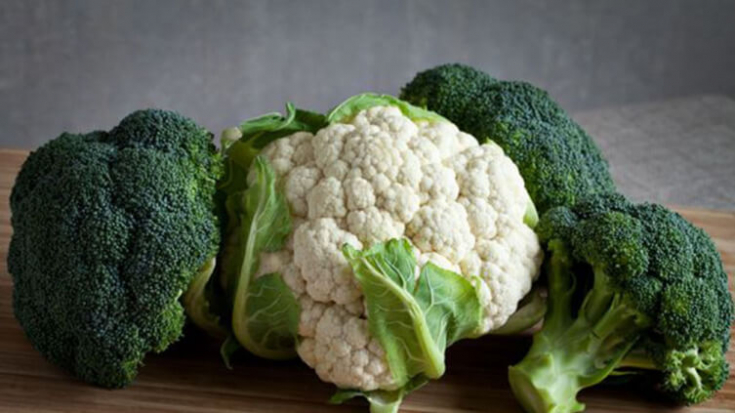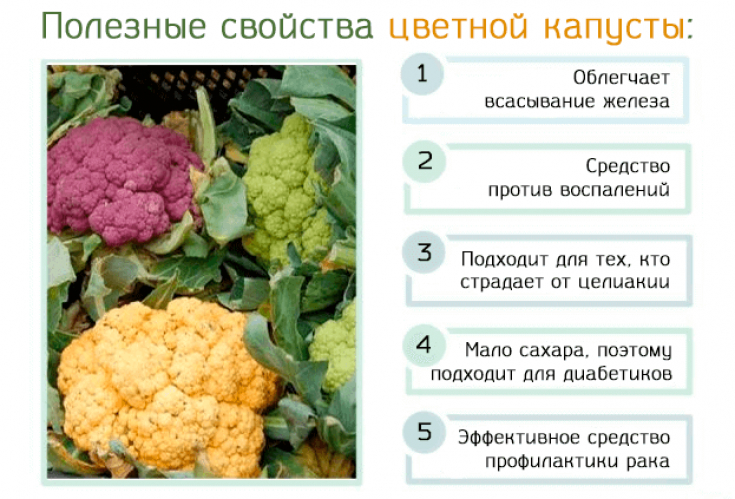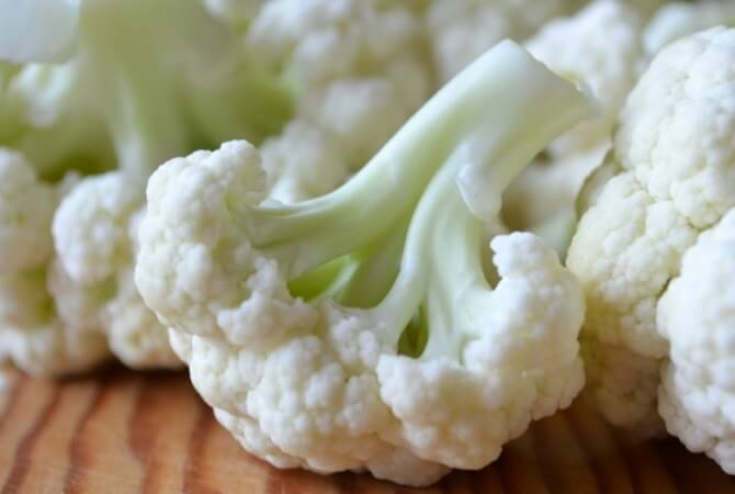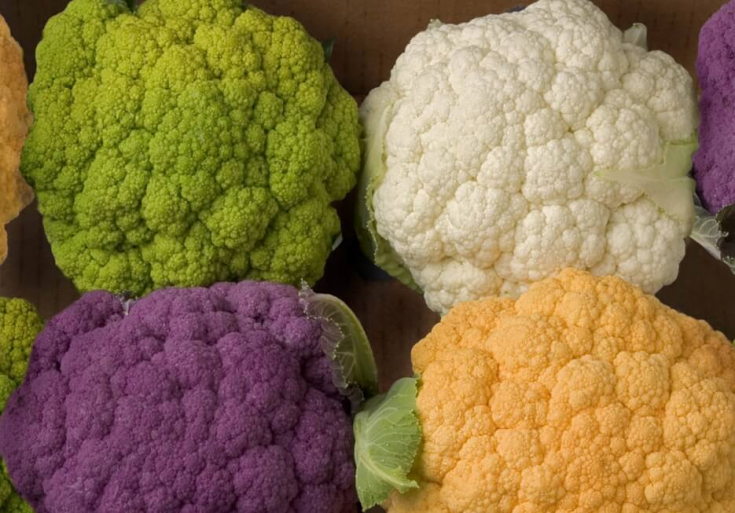Cauliflower – a healthy and affordable vegetable that is common in our cooking. Soups, salads are prepared from it, canned, fried in batter, etc. This vegetable is also very useful for the body due to its rich composition of vitamins and minerals. But few people know why cauliflower is so valuable. What is special about its composition? Who can be useful?
The editors of estet-portal.com will tell you about what is the use of cauliflower, whose properties we will describe below. We will also pay attention to the fact that some people should eat it with caution.
- Cauliflower: variety of properties of a vegetable
- Cauliflower: positive results from menu use
- Cauliflower: potential harm when consumed
Cauliflower: a variety of vegetable properties
Cauliflower contains many useful substances – minerals and vitamins. This is a real storehouse of valuable components necessary for the health of the body. For example, it has 2 times more protein and three times more vitamin C than white cabbage.
More useful information on our Instagram page!

What else is rich in cauliflower:
• vitamins B6, B1, A, PP;
• minerals – sodium, potassium, magnesium, iron and calcium;
• mineral salts;
• amino acids – lysine, arginine;
• fiber – necessary for the normal functioning of the digestive system;
• easily digestible protein compounds – due to this, this type of cabbage is easier to digest;
• pectin substances;
• citric and malic acids;
• folic acid.<
Read also: The impact of the gut on overall human health

Cauliflower – dietary product. 100 grams of vegetable contains only 30 kcal. And due to the content of tartanic acid, cauliflower does not allow the formation of fatty deposits. If you are on a diet, you are at the stage of losing weight – include cauliflower in your diet. It will definitely benefit you! Moreover, you can make different dishes from it – cook soups, prepare salads, batter.
This type of cabbage is best absorbed by the body. That is why it is included in the diet food – for diseases of the gastrointestinal tract, during the period of rehabilitation after an illness, for weight loss and maintaining sports shape.

Cauliflower, the properties of which we described above, has the following useful properties:
• prevents the appearance of seborrhea due to the presence of vitamin H – it prevents the development of inflammatory processes on the skin;
• due to a smaller amount of coarse fiber, it is easier to digest, does not irritate the intestinal mucosa; increases the separation of bile, prevents constipation, is useful for the functioning of the liver; recommended for gastritis, bronchitis;
• strengthens the walls of blood vessels;
• improves bowel function, promotes digestion;
•
Read also:
10 myths about vegetables and foods
In addition, cauliflower is known for being one of the preventive agents against cancer. Therefore, it must be included in the daily diet – and not only in the season of this vegetable.
Cauliflower: potential harm when consumed
Cauliflower – vegetable useful, but in some cases can be harmful. It has a number of contraindications that must be taken into account.
So, you can not eat cauliflower for those who have an increased acidity of the stomach, suffer from ulcers, acute enterocolitis and intestinal spasms. Those who have recently undergone surgery in the chest or abdominal cavity should refrain from eating this vegetable.
People with kidney disease and frequent pressure surges need to be careful. It is not recommended for gout patients. And, of course, allergy sufferers should refrain – it can cause negative reactions. The fact of the negative effect of cauliflower on the thyroid gland was also recorded. It can provoke the development of goiter. If you have thyroid problems or a tendency to them associated with heredity, you need to be careful eating cauliflower dishes.

Read also:
Slimming products: healthy nutrition list
Watch us on YouTube:






Add a comment